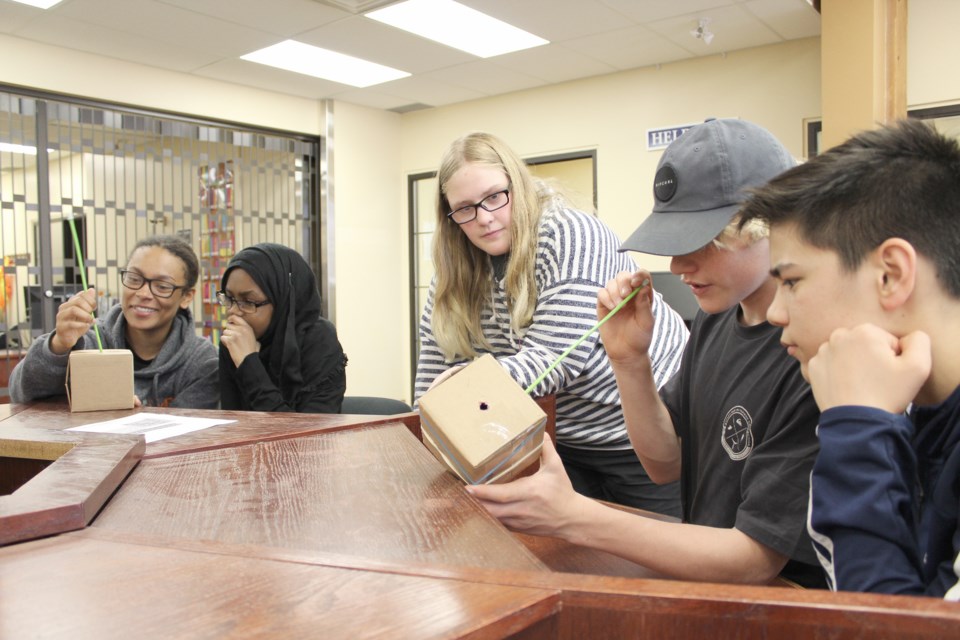Boggle and needling are not what one would expect during the Olympics, but area students were racing for gold in those and other activities Friday.
Science Olympics Simcoe/Muskoka made its debut at Lakehead University’s downtown Orillia campus.
It wasn’t a typical game of Boggle, either. It was Chemistry Compound Boggle.
“My brain hurts,” said Brandon Small, 17.
But the Twin Lakes Secondary School student wasn’t complaining. He and 31 other students from Orillia and Midland put their skills to the test during the day-long event.
Unlike many of the sports played at the Olympics, Friday was all about teamwork as students worked together to solve the problems in front of them.
“It’s us against the questions instead of us against each other,” said Twin Lakes student Simon Parna-Gile, 16.
While students in grades 11 and 12 tackled Chemistry Compound Boggle and cell multiplication, the younger participants, in grades 9 and 10, gave needling a try. Armed with a knitting needle, they poked at an object in a mystery box, trying to figure out what was inside: an onion, a red pepper, a beet.
It was a nice break from the classroom for Tyonna Ashby, 15, of Orillia Secondary School.
“It’s very hands-on,” she said. “It tests our ability and knowledge.”
“It’s a lot better than science class,” added Jacob Man, 14, who enjoyed making a model car powered by a balloon.
The students were eager to team up and solve the problems presented to them, and that was exciting for Dave Law to see.
“I really like the enthusiasm. It’s really inspiring to me, as someone who teaches science, to see that,” said Law, a biology professor with Lakehead.
Law used to teach at Lakehead’s Thunder Bay campus, where Science Olympics have been going on for a decade. When he moved to Orillia, he wanted to offer the program here.
“I really liked being part of it in Thunder Bay and thought it was a cool way to bring some science challenges to kids in Simcoe-Muskoka,” he said. “We’re always looking for ways of doing fun things with science and demonstrating to young people that it’s applicable to their everyday lives.”
All of the activities students took part in Friday were team based, which made sense to Law because “it’s the rare scientist that can do everything themselves.”
Law hopes to see the Science Olympics return next year with, possibly, more students involved.
